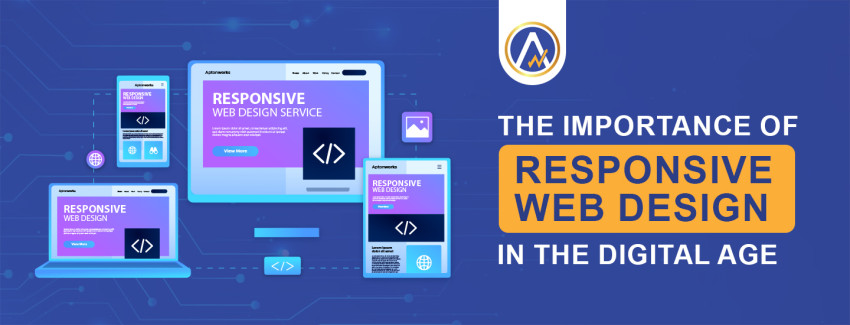
In today's digital age, where smartphones and tablets have become an integral part of our lives, having a responsive web design is no longer a luxury but a necessity. Responsive web design ensures that your website adapts seamlessly to different screen sizes and devices, providing an optimal user experience. In this blog post, we will explore the importance of responsive web design and how it can benefit your business in the ever-evolving digital landscape.
Enhanced User Experience:
With the increasing number of mobile users, it is crucial to provide a consistent and user-friendly experience across all devices. Responsive web design allows your website to automatically adjust its layout, images, and content to fit any screen size. This ensures that users can easily navigate, read, and interact with your website, regardless of the device they are using. By prioritizing user experience, you can keep visitors engaged, reduce bounce rates, and increase conversions.
Improved SEO Performance:
Search engines, like Google, prioritize websites that offer a great user experience. Responsive web design plays a significant role in improving your website's search engine optimization (SEO) performance. With a responsive design, you can avoid duplicate content issues that may arise from having separate mobile and desktop versions of your website. Additionally, a mobile-friendly website is more likely to rank higher in search engine results pages, leading to increased organic traffic and visibility.
Cost and Time Efficiency:
Maintaining separate websites for desktop and mobile can be time-consuming and costly. With responsive web design, you only need to manage and update one website, saving you valuable time and resources. Moreover, as technology continues to evolve, responsive design ensures that your website remains compatible with new devices and screen sizes, eliminating the need for frequent redesigns or updates.
Increased Reach and Accessibility:
A responsive website allows you to reach a wider audience by catering to users across various devices. Whether someone is browsing on a smartphone, tablet, or desktop, your website will provide a consistent experience, making it accessible to all. By embracing responsive design, you can tap into the growing mobile market and connect with potential customers who prefer to browse on their mobile devices.
Competitive Advantage:
In a competitive digital landscape, standing out from the crowd is essential. A responsive website gives you a competitive edge by demonstrating your commitment to providing a seamless user experience. Users are more likely to engage with a website that is visually appealing, easy to navigate, and accessible on any device. By investing in responsive web design, you can differentiate your brand and leave a lasting impression on your audience.
Conclusion:
In the digital age, where mobile usage continues to rise, responsive web design is no longer optional but a fundamental requirement. By prioritizing user experience, improving SEO performance, and ensuring accessibility across devices, responsive web design can significantly impact your online presence and business success. Embrace the power of responsive design and stay ahead in the ever-evolving digital landscape.
Remember, a responsive website is an investment in your brand's future. So, make sure to partner with experienced web designers who understand the importance of responsive design and can help you create a website that delivers a seamless experience across all devices.



